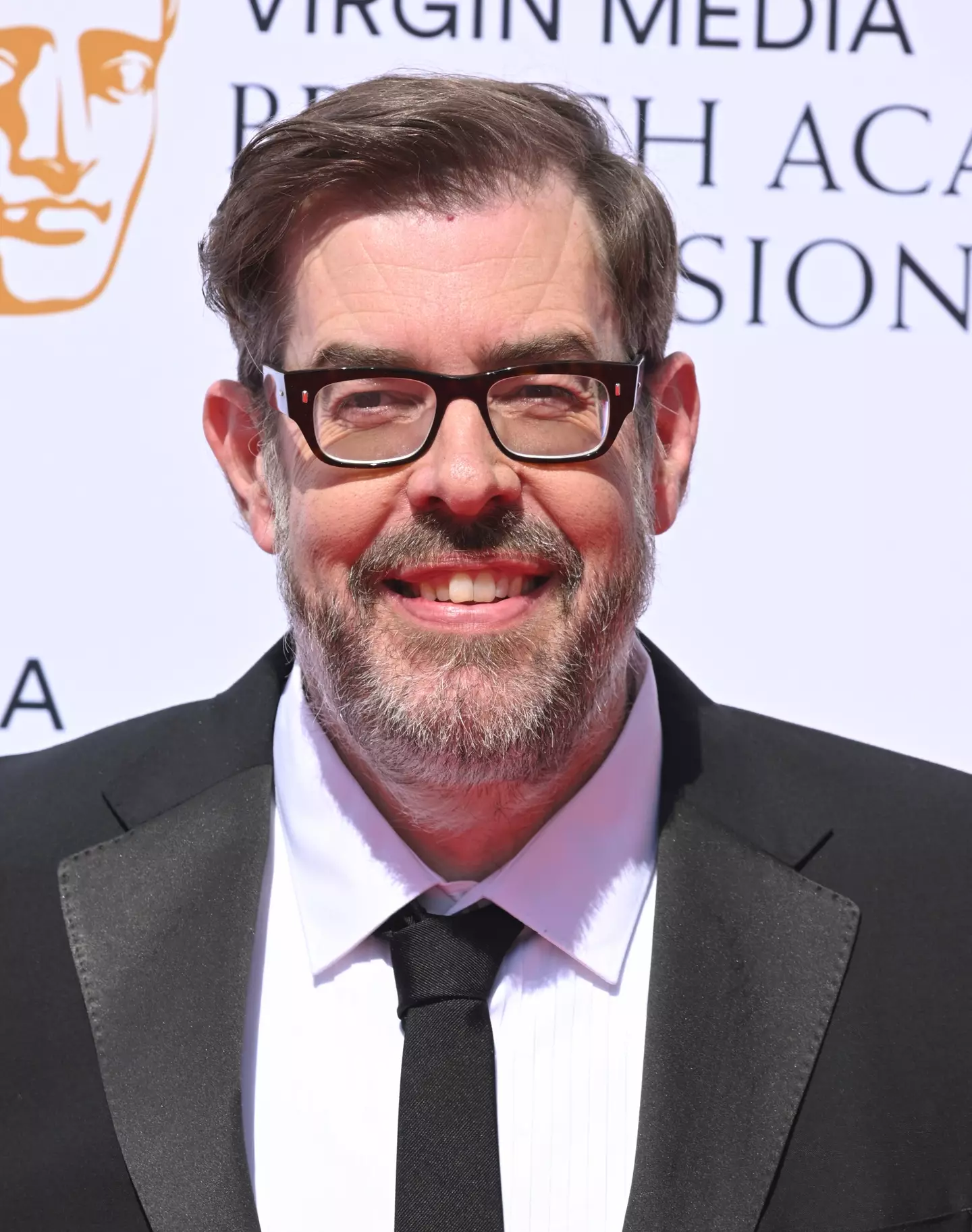
Richard Osman is a bona fide heavyweight in the British TV industry.
He shot to fame as one half of the presenting duo on game show Pointless, which he created, serving as the font of knowledge alongside Alexander Armstrong’s lead hosting.
Nowadays he’s the main event in his own right, co-hosting The Rest is Entertainment alongside Marina Hyde, penning a series of bestselling novels, and serving as a mainstay across British telly.
The Trinity College, Cambridge alum was born in 1970 and soon fell into TV production post-graduation. By 2009 he was co-presenting Pointless and stayed on the show until 2022.
Advert

Since 2017 he’s also hosted Richard Osman’s House of Games, and regularly appears on a litany of British panel shows including Have I Got News for You and Taskmaster.
Known for his affable personality and encyclopaedic knowledge of all things everything, fans may have been surprised to learn that he has been battling with a food addiction for several decades.
The 54-year-old recently opened up to The I Paper about the origins of his strained relationship with food and his reflections on managing it.
His childhood was characterised by what he describes as his and his brother’s inability to ‘do the thing that was expected’. He said his mum had been keen on them both to pursue professions in medicine or law, and ‘It took her about thirty years to accept that we both wanted to be in the middle of the conversation’.
He noted that he was always a creator at heart, and that fame is just a by-product of that passion.
“Fame held zero interest for me,” I wanted to make things. I wanted to write. I wanted to make TV. I wanted to entertain people, but I did not want to be in front of the camera. I didn’t want have any sort of profile whatsoever and even though I was incredibly proud of my brother being up there on stage there was not a second of envy or, ‘Oh, I wish that was me,’ because I couldn’t have thought of anything worse than being up on stage and everyone looking at me, but it did made me think there are creative ways to make a living.”
He alluded to the fact that this aversion may have stemmed from unwanted attention over his height, although that existing ability to draw eyeballs made the transition to fame easier to cope with.
“I’m six foot seven so I’ve spent my whole life walking down the street with people staring at me anyway so losing my anonymity wasn’t a big thing,” he said. “People were just staring at me for a slightly different reason.”
However, in the background of this steady rise to fame set upon deeply-creative foundations, Osman has been undergoing a personal struggle that he says has continued to the present day.
The onset of his maladaptive relationship with food, he said, was a response to an awful childhood trauma.
“The roots of my food addiction, which was about trying to regain control over something, was probably my dad leaving,” he explained.
“At the age of eight or nine I didn’t really have access to booze or hard drugs, but food was something I could control. That’s a bit of cod psychology but it certainly dominated my life for a long time, and it’s also made me feel utterly sympathetic and not judgemental about people’s behaviour.
He continued: “I always think, ‘Look at some of the decisions you made around abusing food. You’re an idiot so everyone else is allowed to be an idiot too.’ It’s made me understand that we’re all monkeys on a rock and we’re all just trying to get through as best we can.”
Osman’s personable and empathetic nature is blatantly evident in his TV persona, and here he’s touched upon how self-reflection and the way it can reframe your place in the world and the patience you can develop for other people.

As with most addictions, managing a food addiction is typically a lifelong task. As Osman explains, avoiding the addictive substance is challenging enough when it isn’t an essential for living.
“Food addiction is a hard one because you can’t just say, ‘I’m going cold turkey.’ You can say, ‘I’m not going to drink anymore,’ or I’m not going to take drugs,’ but obviously food is ever-present in everyone’s life,” he said.
“I have good days and bad days and I’m old enough not to judge myself too much on those bad days and not to feel shame, which is the key. The second you remove the shame; it loses an awful lot of its sting.”
Topics: Celebrity, TV and Film
